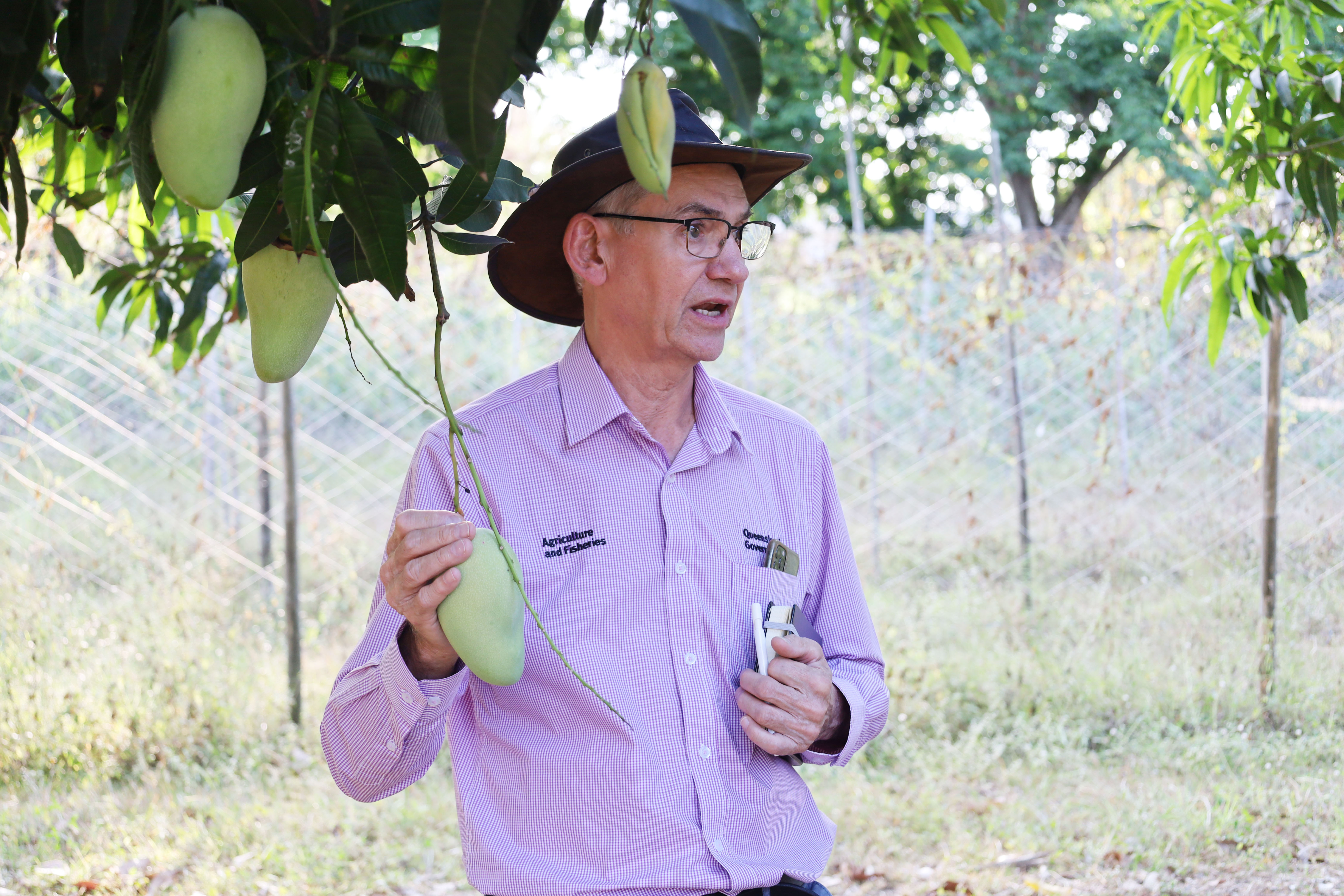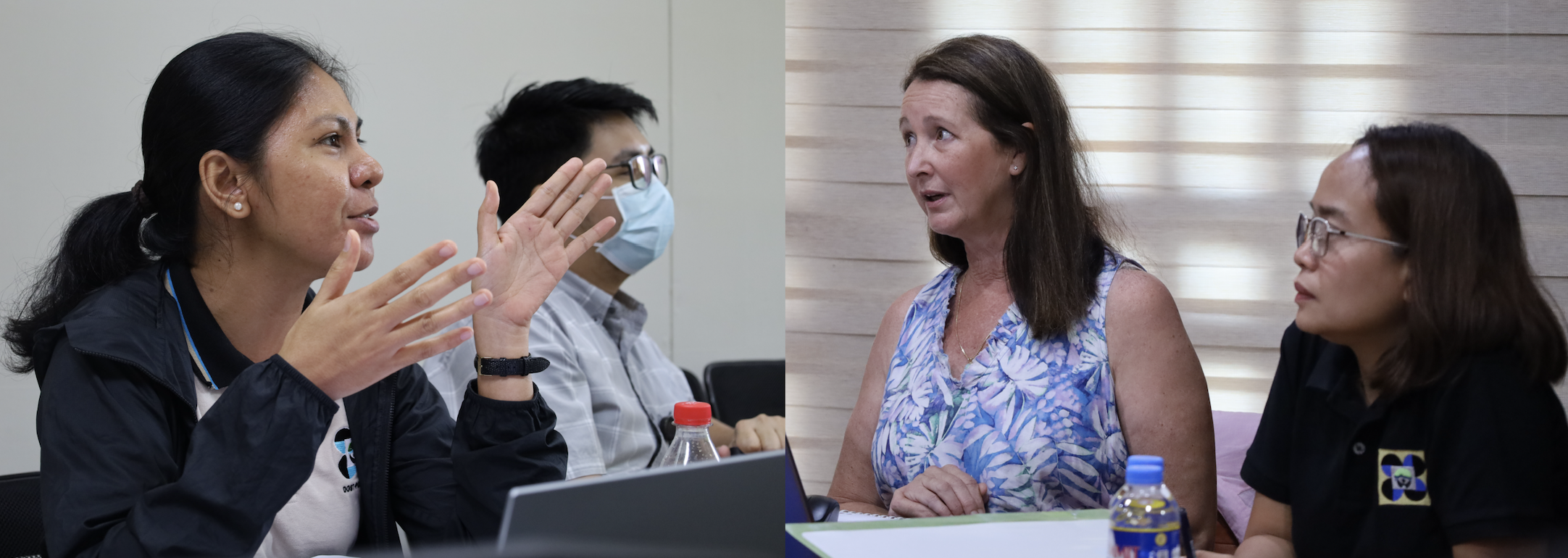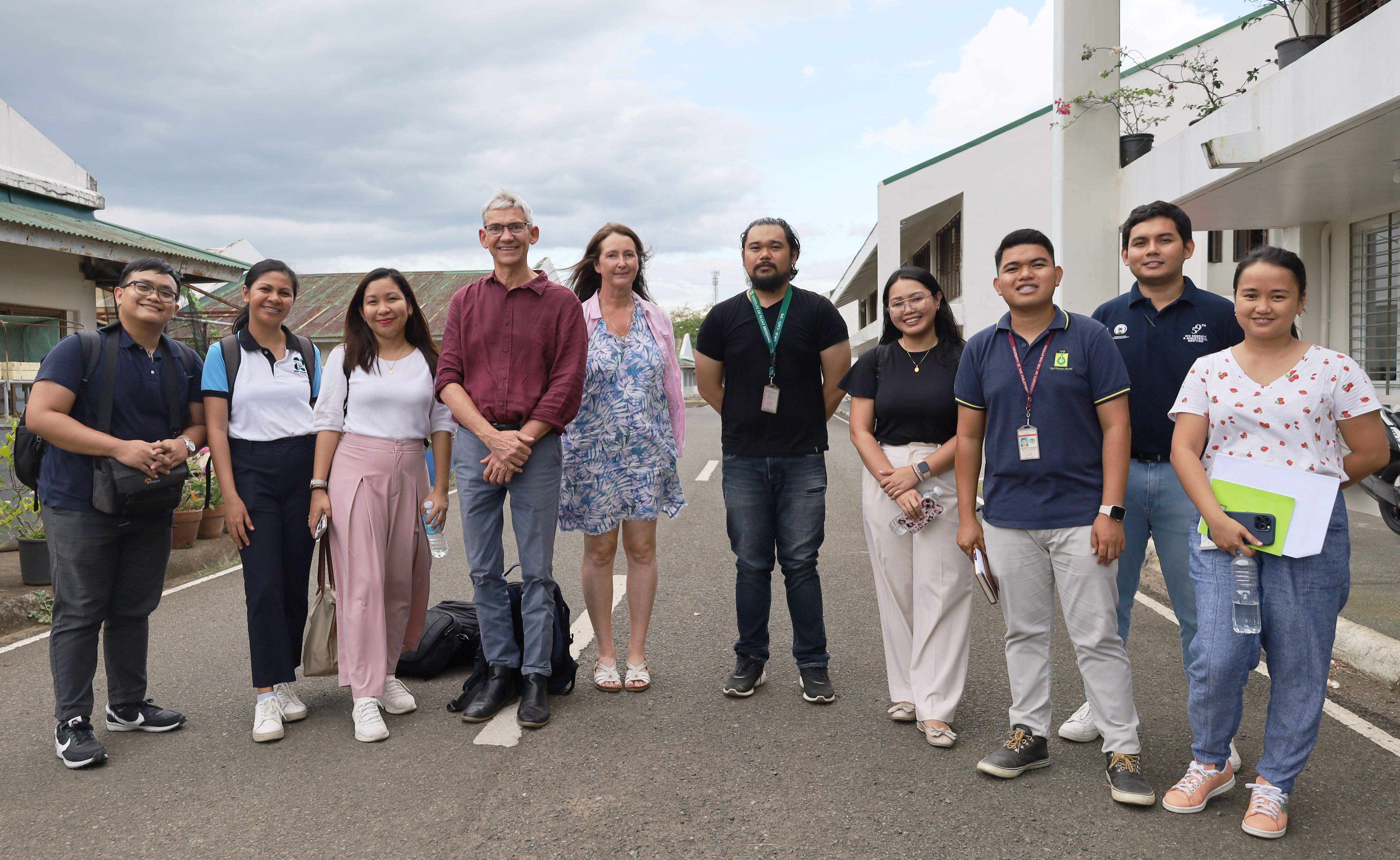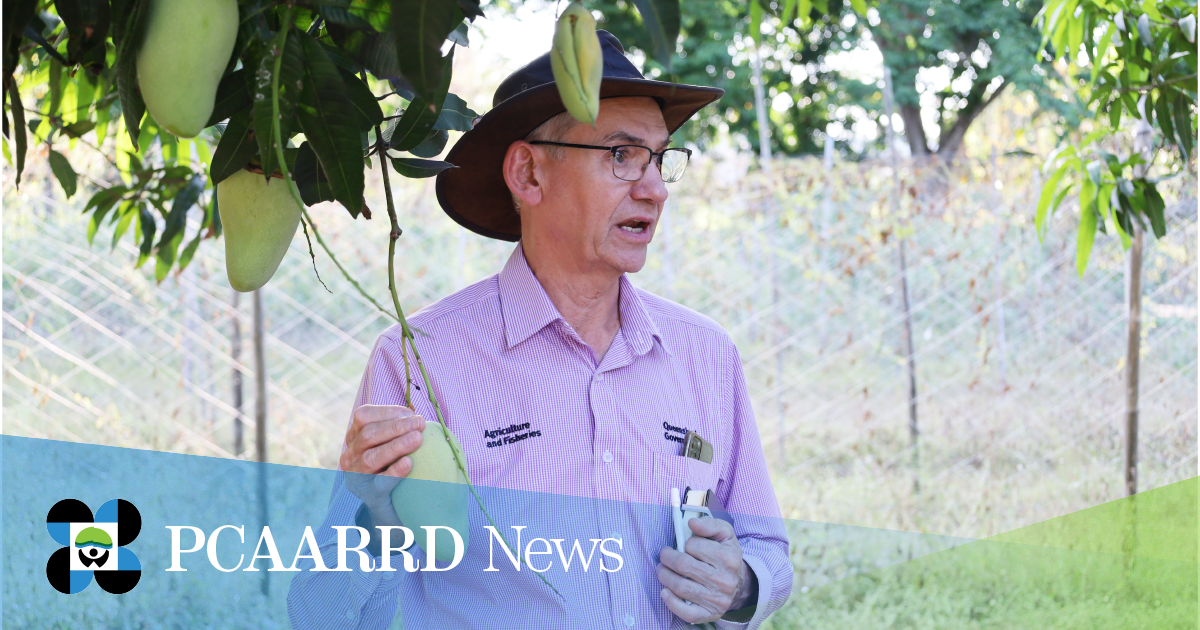A three-day benchmarking review to explore potential collaboration on mango breeding research was recently conducted by the Queensland Department of Agriculture and Fisheries (QDAF) of Queensland, Australia.
The Philippine Council for Agriculture, Aquatic and Natural Resources Research and Development of the Department of Science and Technology (DOST-PCAARRD) facilitated this initiative, through its Crops Research Division (CRD), in partnership with the University of the Philippines Los Baños (UPLB).

Dr. Ian Bally of QDAF during a field visit at IPB’s Mango Breeding Block. (Image credit: CRD, DOST-PCAARRD)
The benchmarking review was carried out to initiate a Small Research Activity (SRA), which will be funded by the Australian Centre for International Agricultural Research (ACIAR) and implemented by QDAF with DOST-PCAARRD and UPLB.
Similar to R&D projects funded by DOST-PCAARRD, an SRA is designed to address gaps in the technology chain of priority commodities such as mango. It also provides an opportunity for capacity building as it offers training for researchers in selected disciplines.
During a meeting with UPLB’s Institute of Plant Breeding (IPB) and Institute of Crop Science (ICropS), Dr. Ian Bally and Dr. Natalie Dillon of QDAF presented Australia's current mango breeding program that they have been working on for the past decades. In their presentations, they highlighted the progress of their research work and identified technologies and methods that can be shared with IPB and ICropS through the SRA.

DOST-PCAARRD ISP Manager for Mango Ma. Cecilia Alaban as she facilitates the SRA planning meeting in ICropS, CAFS-UPLB (left) and QDAF Scientist Natalie Dillon and CRD Dir. Leilani Pelegrina during the benchmarking meeting in IPB, CAFS-UPLB (right). (Image credit: CRD, DOST-PCAARRD)
Similarly, Ms. Carolyn Alcasid, a University Researcher of IPB and the program leader of the Philippines’ mango breeding program, highlighted the accomplishments of the program team from IPB and ICropS. These include the National Seed Industry Council (NSIC)-registered varieties, developed hybrids, and identified selections with resistance to anthracnose and fruit fly. She also discussed the other activities undertaken by the IPB Fruits, Ornamentals, and Medicinal Crops Section (FOMS) aside from mango breeding.
During the review, the participants laid out their initial plans for the SRA and identified activities on mango genomics that will be considered as components of the activity.
The review was also attended by representatives of IPB and ICropS led by Deputy Director Maria Luisa D. Guevarra and Director Eureka Theresa M. Ocampo, respectively, along with the CRD team led by Director Leilani D. Pelegrina and Industry Strategic Science and Technology Program (ISP) Manager for Mango Ma. Cecilia S. Alaban.

Participants from DOST-PCAARRD, QDAF, and UPLB (IPB and ICropS) during the benchmarking review of the Philippines’ mango breeding program. (Image credit: CRD, DOST-PCAARRD)

